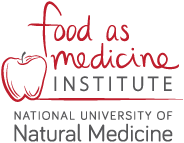
Have you ever noticed that you crave different foods at different times of the year? As summer comes into full swing with longer, sunnier days, our bodies crave lighter, hydrating summer foods, and for good reason.
Our bodies are naturally designed to digest certain foods at different times throughout the year.
We are big fans of seasonal eating at the Food as Medicine Institute, and throughout the year, we’ll highlight the best foods to eat in what season, starting with summer.
What is Seasonal Eating and Why It’s Important for Health
Seasonal eating means choosing foods that are naturally grown and harvested during the current season. As hunters and gatherers, this used to be second nature; we relied on what was available at different times of the year. We’d harvest fresh foods and preserve them for the winter months when fresh crops weren’t available
Today, modern farming and globalization have made it possible to access nearly any food, any time of year. Strawberries in January? No problem. While this convenience is appealing, research shows that year-round mass production may come at a cost to our health. Industrial farming practices have been linked to a decline in nutrient density and overall food quality.
At FAMI, our mission is to empower people to use food as a tool for health and healing, and seasonal eating is one way to do that. Seasonal foods are fresher, more flavorful, and often more nutrient-dense. They also support hydration, healthy digestion, steady energy, and reduced inflammation.
Top Health Benefits of Eating Seasonal Summer Foods
One of the key benefits of seasonal eating is freshness. When we eat foods that are in season, we’re getting them at their peak freshness when they’re packed with the highest levels of nutrients, vitamins, minerals, and flavor.
Summer produce, in particular, is often rich in water. Think about cucumbers, watermelon, celery, and lettuce, all of which are made of more than 95% water. These hydrating summer foods help keep us from getting dehydrated during hot weather, when our bodies need extra support.
Many seasonal summer foods also have cooling anti-inflammatory properties. For example, menthol in mint activates cold-sensitive receptors in the mouth and skin, helping us feel cooler while also reducing inflammation and aiding digestion. The fresher the food the more nutrient dense, fiber, and flavor the have as these tend to break down over time. Eating fresh seasonal summer foods also supports a balanced gut microbiome and healthy digestion.
Best Summer Fruits and Vegetables for Hydration and Health
While you can’t really go wrong with any fruits and vegetables in season, here are some of our favorite seasonal summer foods.
Berries
Strawberries, blueberries, and raspberries are nutrient-dense powerhouses, rich in essential minerals such as potassium, calcium, magnesium, iron, and zinc. They’re also packed with anti-inflammatory polyphenols that help reduce oxidative stress in the body. Research has linked eating berries to a range of health benefits, including lower blood sugar levels, anticancer activity, improved skin health, and protecting brain function.
Melons
Strawberries, blueberries, and raspberries are nutrient-dense powerhouses, rich in essential minerals such as potassium, calcium, magnesium, iron, and zinc. They’re also packed with anti-inflammatory polyphenols that help reduce oxidative stress in the body. Research links eating berries to a range of health benefits, including lower blood sugar levels, anticancer activity, improved skin health, and protecting brain function.
Stone Fruits
Peaches, nectarines, cherries, and plums, known as stone fruits, are rich in antioxidants such as flavonoids and cyanidins, which help reduce oxidative stress and inflammation in the body. Their high fiber and polyphenol content support healthy digestion and natural detoxification. Cherries, in particular, are high in anthocyanins, anti-inflammatory compounds connected supporting heart and brain health, as well as provide protective effects against certain types of cancer.
Cucumbers
Cucumbers are one of the most hydrating and cooling summer vegetables. They have a high-water content making them easy to digest and naturally detoxifying. Additionally, they’re packed with plant compounds like polyphenols, cucurbitacins, flavonoids, and carotenoids. These nutrients help counteract free radicals, reduce inflammation, fight bacteria and tumor growth, and protect against oxidative stress. They also support healthy blood pressure, balanced blood sugar, cardiovascular function, and can even help soothe irritated skin.
Tomatoes
Tomatoes are another summer staple, rich in lycopene which helps protect against sun damage and inflammation. They’re high in vitamins E and C, and minerals like potassium, phosphorus, magnesium, calcium, and iron. With additional nutrients like beta carotene, lutein, and zeaxanthin, tomatoes support eye and heart health as well as blood circulation, muscle strength, digestion, and reducing oxidative stress and cholesterol levels.
Summer Squash
Summer squash is loaded with phytochemicals and carotenoids that make it another potent summer food. The small seeds can be eaten raw or cooked and are rich in healthy fats, proteins, and antioxidants. Squash are also full of potassium, fiber, iron, folate, and vitamin C. It’s especially known for supporting heart health, blood sugar regulation, lowering blood pressure, boosting immune function, and offering anti-inflammatory and anticancer benefits.
Leafy Greens
Leafy greens like spinach, kale, and Swiss chard are a light and nutrient-dense. They’re packed with vitamins A, C, and K, folate, and minerals such as iron, magnesium, potassium, and calcium. High in fiber, they promote healthy digestion and are linked to a wide range of benefits, including antioxidant, anti-inflammatory, anti-diabetic, and anticancer effects.
Tips for Eating Seasonally in Summer
One of the best ways to eat seasonally is by shopping at your local farmers’ markets. Summer farmers market produce offers the freshest, local options and give you a direct connection to where your food comes from. Supporting local growers also strengthens your community and its economy. While it may not be realistic to buy all your groceries from the farmers’ market, simply choosing two or three favorite summer foods each week is a great place to start.
Other summer nutrition tips:
- Eating raw or lightly cooked preparations (grilling, steaming, quick sautés) to preserve nutrients.
- Make hydration part of meals: Think infused waters, chilled soups, or juicy fruit-forward salads.
- Batch prep cold dishes like grain salads, wraps, and smoothie packs.
Final Takeaway
Embracing summer’s seasonal foods is about more than just eating fresh, it’s a way to align with your body’s natural rhythm and support your local community. Seasonal eating encourages variety, ensures peak freshness, nutrition and flavor, and supports the body’s different stages throughout the year. When we eat in rhythm with nature, we nourish more than our hunger; we cultivate resilience, boost energy, and lay the foundation for long-term wellness.

